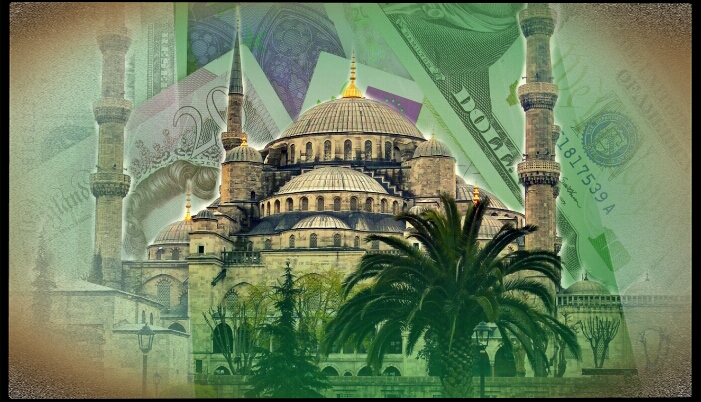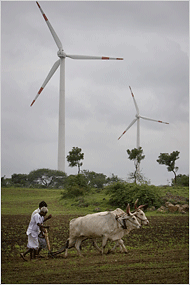When the Western financial world imploded in 2007-8, many nations’ economies suffered as a result. Riding out the storm with little to no negative impact in the midst of severe economic downturn, the Islamic financial market has paradoxically been experiencing exponential growth. For this reason, Islamic finance has become a topic of worldwide interest. However, it is a subject for which not much solid informational material is available in the West.
Based in the UK, Global Banking and Finance Review is a leading financial news provider with 2 million readers from over 200 countries around the world. This past November, the Global Banking and Finance Review Awards were announced. The award for “Best Islamic Finance Training Institution MENA 2014” and “Best Islamic Online Finance Program MENA 2014,” went to Ethica Institute of Islamic Finance based in Dubai.
Ethica Institute of Islamic Finance
A spokesperson for Ethica Institute of Islamic Finance said, “It is an honor to receive these awards, by the grace of God. In reality, Ethica shares them with the community of professionals who place their trust in us. The world is ready for an alternative to interest-based finance and the excesses that bring us a new financial crisis every decade, and we are grateful to be recognized for the small role we play in promoting this awareness.”
Ethica’s Certified Islamic Finance Executive (CIFE) program has now certified professionals in over 160 financial institutions in 64 countries. Tens of thousands of finance professionals around the world have received training through its many popular resources. In addition to their award-winning CIFE certification program, Ethica also offers a 7-day free course, 700 page e-book, thought leadership webinars, and partnerships across the globe.
Training Resources for Finance Professionals
The Global Banking and Finance Review looks at a variety of factors, but market recognition is paramount. Shamraz Kitchilan, a banking professional from Sri Lanka offered an explanation justifying Ethica’s award. “The 700-page handbook of Islamic finance is indeed a highly praiseworthy initiative launched by Ethica. The fact that highly valuable and hard to get knowledge was compiled as an e-book and offered free to anyone interested in this topic, is a generous and selfless act. It only goes to show why Ethica is the industry leader, demonstrating true professionalism and social responsibility.”
The diversity of finance professionals seeking training with Ethica Institute for Islamic Finance has included, for example, an American social entrepreneur bringing Islamic banking principles to alleviate poverty in Vietnam; a British wealth-advisor developing a Shariah-compliant microfinance model for schools in Palestine; a 66-year-old retired professional in China writing an Islamic banking manual in Chinese; and an investment banker establishing the first Islamic bank in Tajikistan.
Islamic Finance is Growing Green and Rising
The following article, Islamic Finance is Growing Green and Rising offers a basic look at the guiding principles and current state of Islamic Finance. It was originally published on our sister site, EdenKeeper.org, and is republished here for wider sharing on this fast-expanding market, and globally trending topic.
Islamic Finance Is Growing Green and Rising, by Aisha Abdelhamid
When the subprime finance bubble burst in 2007-08, traditional lending institutions suffered severe economic damage, and much of the global economy tanked as a result. Like a lone building left standing after a tsunami, the Islamic finance industry escaped undamaged.
Unaffected by the economic downturn, Islamic finance is now being eyed by interested Western investors asking important questions. How was economic stability so miraculously maintained in the Middle East and Asia in the midst of widespread Western economic failure? Is Islamic finance a viable alternative for Western investors? What are the investment vehicles employed, and how do they operate?
 (Image note and source: Mosque in Aceh province after the tsunami, right next to the ocean – everything else is wiped out. AP Photo/U.S. Navy, Jacob J. Kirk)
(Image note and source: Mosque in Aceh province after the tsunami, right next to the ocean – everything else is wiped out. AP Photo/U.S. Navy, Jacob J. Kirk)
Interest Is Rising in Islamic Finance
Islamic finance is currently a $2 trillion global industry. The rise of “Sukuk” is among the more important developments in Islamic capital markets in recent years. Sukuk are the Islamic equivalent of bonds. Sukuk securities grant an investor a share of an asset, along with the resulting cash flows and risks, and adhere to Islamic laws, or “Shariah.” Critically important in Shariah is the prohibition against paying or charging interest on debt.
In simple terms, Sukuk instruments act as a bridge. Issuers, primarily sovereigns and corporations in the Middle East and Southeast Asia, offer sukuk notes to a broad market of investors, many of whom are seeking to diversify their holdings beyond traditional asset classes. In Asia and the Persian Gulf region, Standard & Poor’s estimates that 20 percent of banking customers would now regularly choose an Islamic financial product over a conventional one, as long as risk-return profiles are similar.
The World Capital of Islamic Finance Is Malaysia
Malaysia is the world capital of Islamic Finance. Rising 51 percent in one year, shariah-compliant debt sales reached 52.7 billion Malaysian ringgit in 2014, according to data compiled by Bloomberg. Globally, the issuance of sukuk has risen 17 percent this year, to a US-equivalent of $42.7 billion, near 2013’s $43.1 billion.
Chief Financial Officer Mohamed Izani Ghani of Malaysia’s financial institution Khazanah Nasional Bhd. spoke to Bloomberg News in a recent interview in Kuala Lumpur. Ghani said Khazanah Nasional is preparing to issue a Malaysian ringgit-denominated Islamic bond to finance expansion in its education and renewable energy businesses. He added that the new sukuk probably would be issued after mid-year 2015.
Khazanah Nasional is a leading innovator in a market that Ernst & Young LLC sees reaching $3.4 trillion in Islamic banking assets by 2018. “Khazanah has been mainstreaming Islamic finance transactions since 2005 to help promote Malaysia as a global Islamic hub,” CFO Izani said. “Our role is to create a pathway for Malaysian companies to follow.” Khazanah first launched exchangeable sukuk in 2006, and was the first foreign issuer of sukuk in Singapore dollars in August 2010. They sold the world’s first Shariah-compliant yuan bonds in Hong Kong in 2012.
Malaysia’s “Green Finance Initiative”
Now the Malaysia government’s new ethical “Green Finance Initiative” is getting a boost from Khazanah. The company plans to be the first to sell sukuk under the nation’s new socially responsible investment (SRI) guidelines. Releasing the new ethical green sukuk guidelines in September, Malaysia’s Securities Commission believes their new green initiative is perfectly timed to meet a growing global trend.
Malaysia’s ethical green finance initiatives encompass environmental, social, and governance (ESG) investments, green technology financing, and socially responsible investment (SRI) sukuk.
World Bank Offers Islamic Finance
Growing interest in sustainable and environmentally friendly development has brought an increase in green projects from the European Commission and the World Bank. Since 2008, the World Bank has issued over $6.4 billion of the debt on its own behalf in the conventional market, taking a leading role in issuing green and socially responsible bonds.
The World Bank’s treasury department is also the intermediary for the sale of as much as $500 million of dollar-denominated ethical-based Shariah-compliant notes. The notes are being sold by the International Financial Facility for Immunization. Michael Bennett, head of World Bank’s derivatives and structured finance said the non-profit organization will sell the three-year vaccine bonds backed by commodities.
 (Image note and source: Kuala Lumpur, Malaysia. Pixabay)
(Image note and source: Kuala Lumpur, Malaysia. Pixabay)
Increasing Sales of SRI Sukuk
After London-based International Financial Facility for Immunization, Malaysia’s Khazanah is the second finance institution to announce plans for selling ethical-based sukuk. “Khazanah’s debut SRI sukuk sale will put Malaysia on the global map as not many countries are promoting such debt,” Badlisyah at CIMB Islamic Bank, a unit of CIMB Group Holdings, told Bloomburg. “It will also help the SRI agenda as a priority in terms of national and Islamic finance development.”
Mohamed Effendi Abdullah, head of Islamic markets at AmInvestment Bank Bhd. in Kuala Lumpur also spoke to Bloomberg. “Khazanah’s planned sale will be the catalyst for other Malaysian companies to follow suit,” said Abdullah. “This is a positive development as it will introduce a new asset class in the Islamic finance industry.”
Fundamentals of Sharia-Compliant Lending
Ethical, or “green” sukuk must be used for socially responsible investments that don’t go against Islamic Shariah principles. Shariah is often referred to as ‘Islamic Law,’ but it is not exclusively a governmentally legislated body of regulations. Shariah also encompasses the Muslim’s spiritual and moral obligations as set forth in Islam’s Holy Book of scriptures, the Quran.
Fixed income, interest bearing bonds are not permissible in Islam, because nobody can guarantee the value of anything tomorrow. Making guarantees on the future is roughly equivalent to lying, a clearly unethical practice. In Islam, money must be made from “something” – something that is tangible “today.” Also, making money by imposing a hardship such as interest fees upon a debtor is considered taking unfair advantage of someone already clearly in need. Selling intangibles, or making money from “nothing” is prohibited.
Sukuk securities are structured in ways that comply with Islamic law and its investment principles. To generate profit untied to the charging or paying of interest, a tangible asset is always incorporated into the investment. This could be, for example, giving the bond purchaser partial ownership of a property built by the investment company. The bond owner is then able to collect his profit “today” from rent generated on the building “today” as a term the issuer agreed upon at the sale of the bond note. At maturity, only the principal is recovered by the purchaser from the issuer of the bond. This is the fundamental basis of Sharia-compliant lending.
The Principle of Economic Value in Islam
Foo Su Yin, RAM Rating Services Bhd.’s chief executive officer noted, “The challenge in having a sustainable green sukuk market is to assure investors that Islamic bond proceeds will be used for projects with economic value, while meeting accepted and credible green standards.”
Within Islamic finance principles, economic value is not exclusively determined by net profit. Socially responsible investing is central in Islam, and economic value rises by investing in “the greater good.” Islam places high priority on the financial support of all family members, and especially widows and orphans. Renewable energy investments and other green projects are equally appealing, as Islam regards the environment as God’s creation, and humans as having a religious obligation to care for it.
A Global “Moral Economy” Is Growing
“While it may take time to create greater awareness in Malaysia of SRI sukuk, Khazanah’s planned offering is a start.” Elsie Tham is senior fund manager at Kuala Lumpur-based Manulife Asset Management Services Bhd. “There will be demand for such debt from global investors who have the environmental interest in mind.”
It seems the Islamic Finance sector is certainly poised for international growth. New York-based Goldman Sachs’s first sale of five-year sukuk notes attracted orders for three times the $500 million it sold. UK Prime Minister David Cameron is committed to making London a major global hub for Islamic finance.
Prince Charles, heir to the British throne, summed up the results of investors’ research into Islamic Finance. Speaking at the World Islamic Economic Forum in London, he said that Islamic banking could provide answers where conventional Western banking had failed, given Islam’s emphasis on a “moral economy.”
 (Image note and source: Prince Charles delivering address at WIEF, London. www.princeofwales.gov.uk)
(Image note and source: Prince Charles delivering address at WIEF, London. www.princeofwales.gov.uk)
News Source: Bloomberg News



